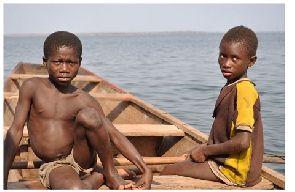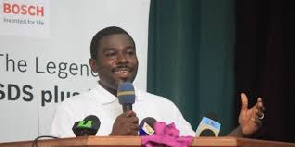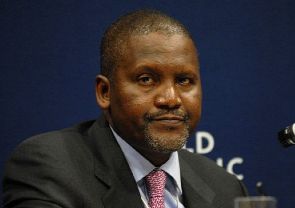Ghana stands the risk of losing the $500 million dollars grant from the Millennium Development Co-operation Challenge Account for failing to fight human trafficking, United States Ambassador to Ghana, Mr. Robert Porter Jackson, has disclosed.
Ambassador Jackson said the Department of State’s 2016 Trafficking in Persons Report ranked Ghana as a Tier Two Watch List country for the second year running.
He explained that the rank implied that the nation did not meet the minimum standards for preventing trafficking in persons and, thus, failed to provide evidence of increasing efforts to fight human trade.
Therefore, he warned that, if Ghana failed to increase efforts in combating human trafficking in the coming years, it would risk dropping to the Tier Three and that under the United States law, a Tier Three ranking would trigger restrictions on US assistance programmes to Ghana.
Mr. Jackson made the disclosure when addressing circuit and high court judges and magistrates at the opening of a third-day training workshop on Adjudicating Trafficking in Persons Cases at the West Africa Regional Training Centre, in Accra, on Wednesday.
The training was organised by the US Embassy through the US-Ghana Child Protection Compact and the State Department’s Bureau of International Narcotics and Law Enforcement.
Ambassador Jackson said: “This is something neither you nor I wish to see happen. At the same time, I do not want that to be the reason Ghana steps up its efforts against trafficking. Please do not combat trafficking because I asked you to, combat it because it is the right thing to do,” he noted.
He said the US was deeply committed to stopping human trafficking worldwide because those trafficked had their human rights abused, while the practice was against international laws and conventions.
He said human trafficking was a huge industry in the world with an estimated $150 billion dollars industry, which could be equated to slavery.
“No country in the world is immune to human trafficking,” he stated, adding that thousands of people were trafficked each year for use as commercial sex workers, factory labourers, crop pickers, manicurists and other menial jobs and must stop.
The Ambassador, therefore, implored judges and magistrates to bring traffickers to justice because their actions violated the country’s laws as well as that of international laws and conventions.
He urged judges to use every means at their disposal to ease the logistical and psychological burdens of trafficking trials for victims to prevent delays and to deliver justice, even to ensure respect for the rights of the accused.
He said the Volta Region was gradually becoming the destination of human trafficking in Ghana since children were trafficked through the Volta Lake.
In April this year, he said, the Ghana Police Service, Civil Society Organisations and Non-Governmental Organisations launched an anti-human trafficking campaign and that efforts resulted in the rescue of some children from the Volta Lake.
He said those rescued had seriously been abused with some having evidence of broken bones and bruises.
He said those trafficked children and women were often forced into prostitution and forced labour that were detrimental to their health and wellbeing.
The US Ambassador stated that the traffickers should be convicted for their crimes to serve as deterrent to others.
He noted that if traffickers were tried and convicted, it would give meaning to Article 16 of the Constitution, which was against slavery, servitude and forced labour.
He said human traffickers and those who profit from human trafficking should be held accountable for their crimes, and noted that for far too long Ghana had not prosecuted offenders for human trafficking.
In Ghana, there are more than 100,000 men, women and children suffering in modern-day slavery and these victims are trafficked to the Middle East expecting decent jobs and only find themselves alone, trapped and exploited by foreign masters.
There are girls and boys sold as little as a bottle of Schnapps and often the victims are the most marginalised members of the society and their vulnerability is what made them attractive targets for traffickers.









